
Find Help
More Items From Ergsy search
-

Is the bite from a false widow spider dangerous?
Relevance: 100%
-

How can I identify a false widow spider?
Relevance: 77%
-
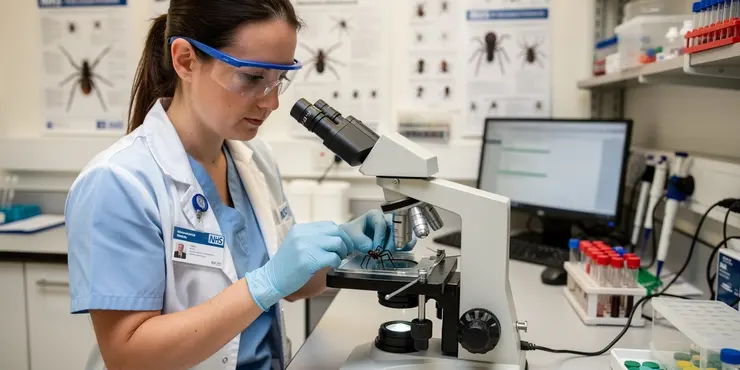
What is the most dangerous spider in the UK?
Relevance: 69%
-

Which spiders in the UK can bite humans?
Relevance: 65%
-
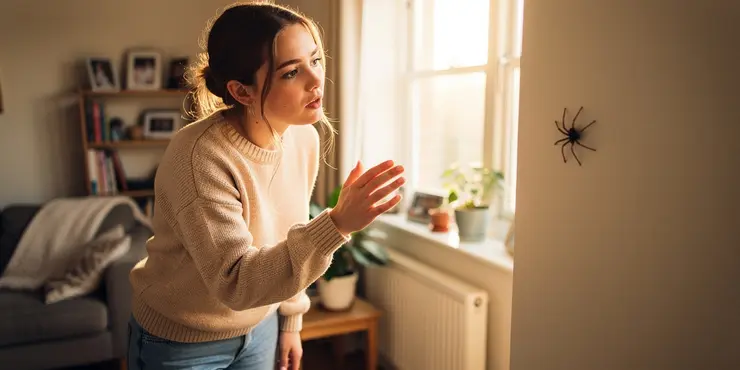
Are there any poisonous spiders in the UK?
Relevance: 55%
-
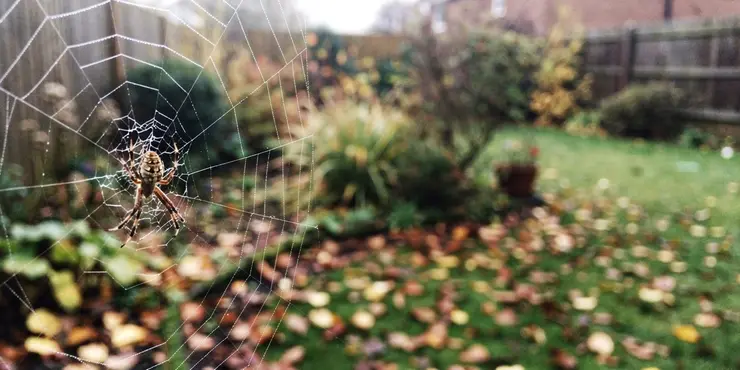
Are UK spiders venomous?
Relevance: 53%
-

Do spiders in the UK carry diseases?
Relevance: 49%
-
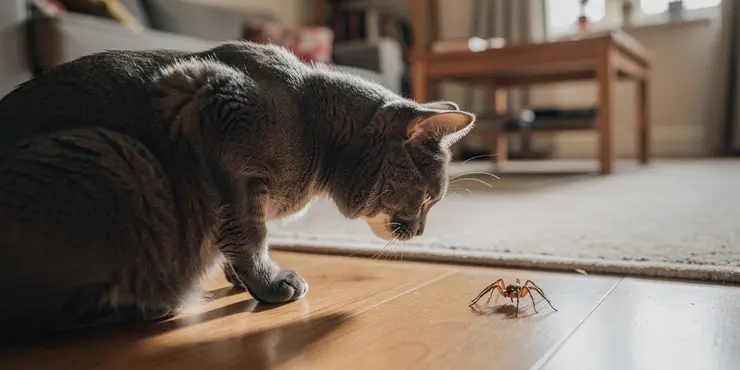
Do UK spiders pose a threat to pets?
Relevance: 49%
-

What should I do if I get bitten by a spider in the UK?
Relevance: 45%
-
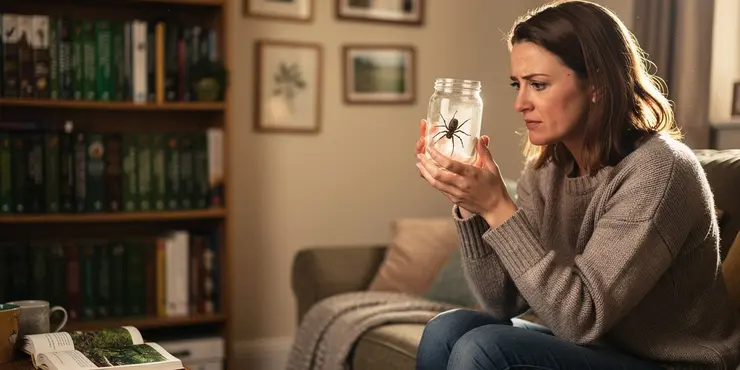
Can UK spiders cause allergic reactions?
Relevance: 41%
-

Are there non-venomous spiders in the UK?
Relevance: 40%
-
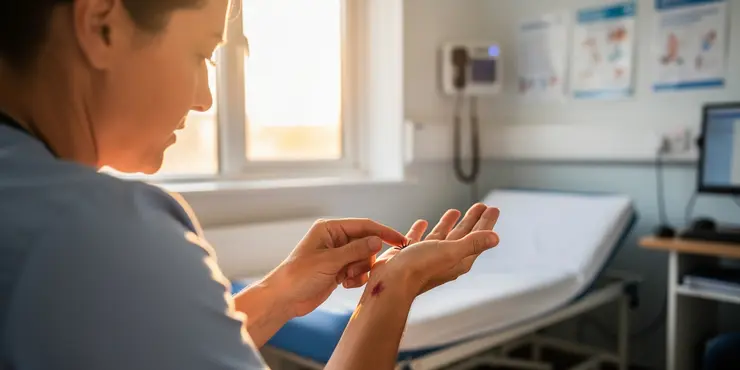
How common are spider bites in the UK?
Relevance: 39%
-
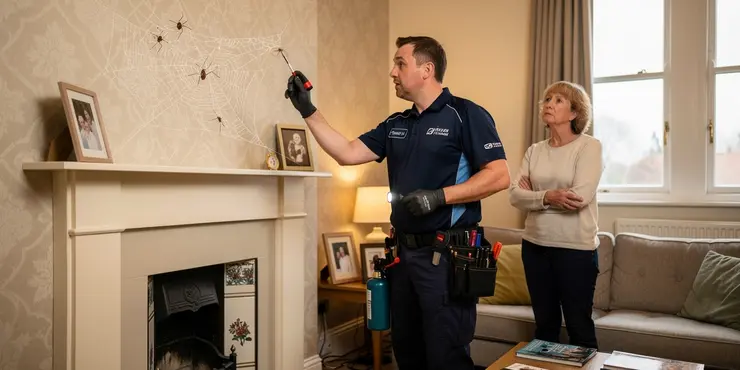
Is professional pest control needed for spiders?
Relevance: 37%
-
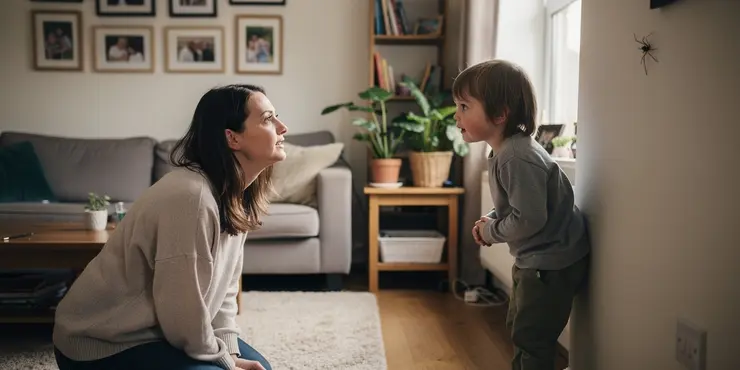
What should I do if I find a spider in my home?
Relevance: 35%
-
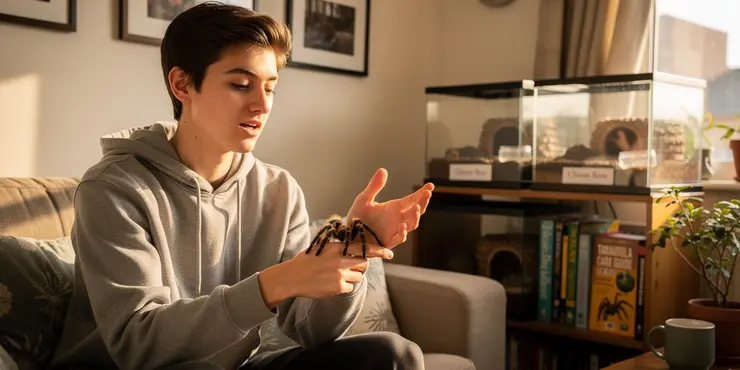
Can I keep a spider in the UK as a pet?
Relevance: 31%
-
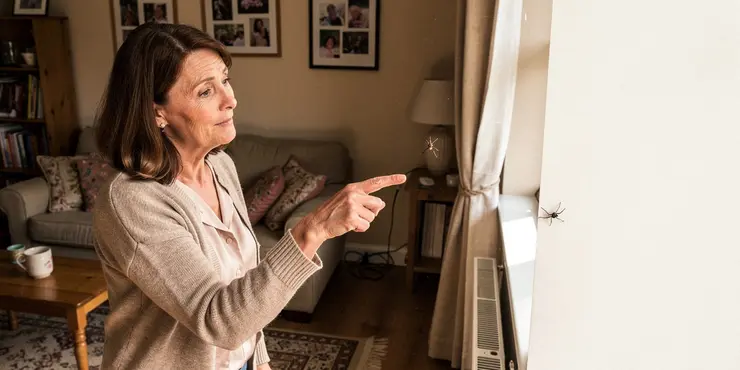
What types of spiders are commonly found in UK homes?
Relevance: 28%
-

Think Pharmacy: Introduction for Bites and Stings
Relevance: 26%
-

Are there any precautions to take against spiders in the UK?
Relevance: 26%
-

How big can spiders in the UK get?
Relevance: 25%
-
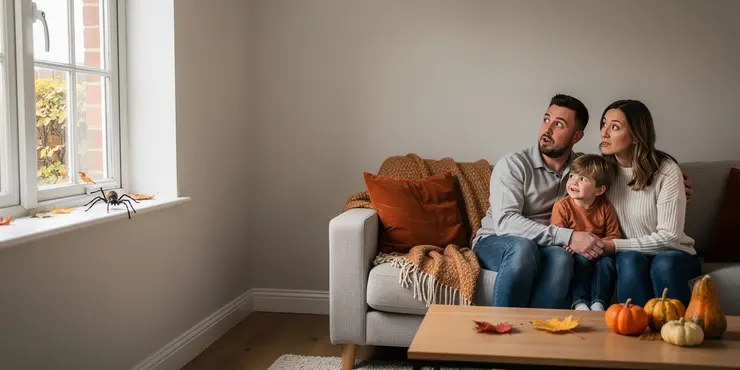
Why might there be more spiders in the home during autumn?
Relevance: 24%
-

What is a false pretence?
Relevance: 24%
-
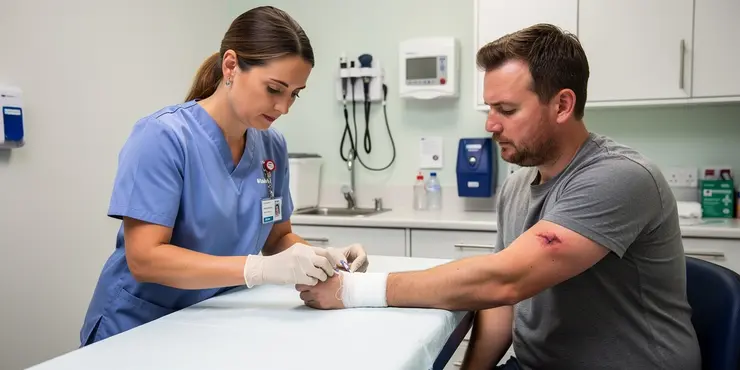
How to treat a dog bite
Relevance: 23%
-
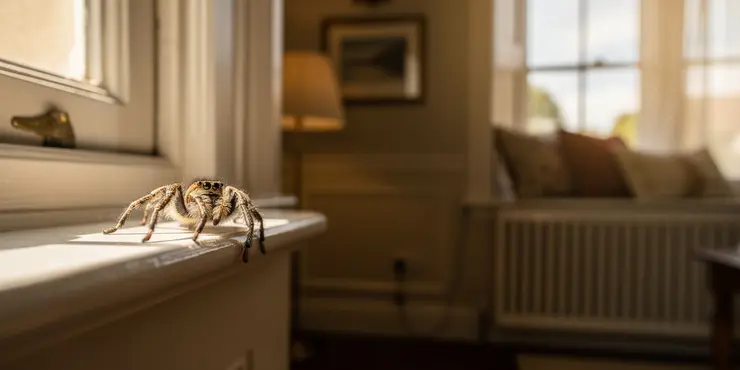
What are the benefits of having spiders in the home?
Relevance: 23%
-

Are mosquito bites in the UK harmful?
Relevance: 21%
-
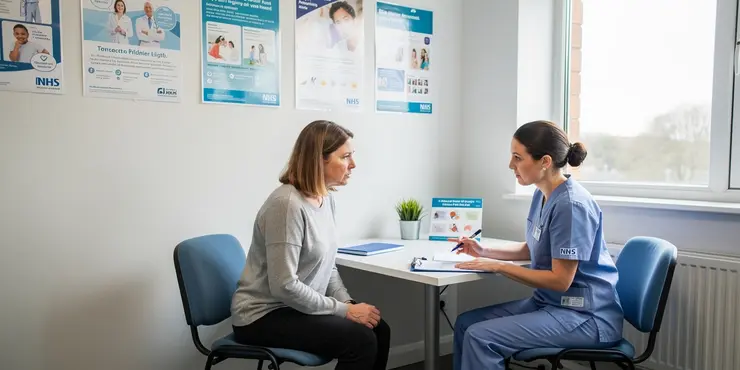
Are bed bugs dangerous?
Relevance: 21%
-
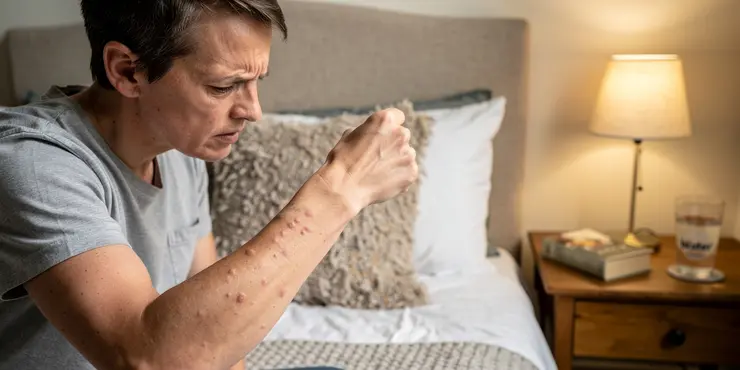
How can I tell if bites are from bed bugs?
Relevance: 20%
-
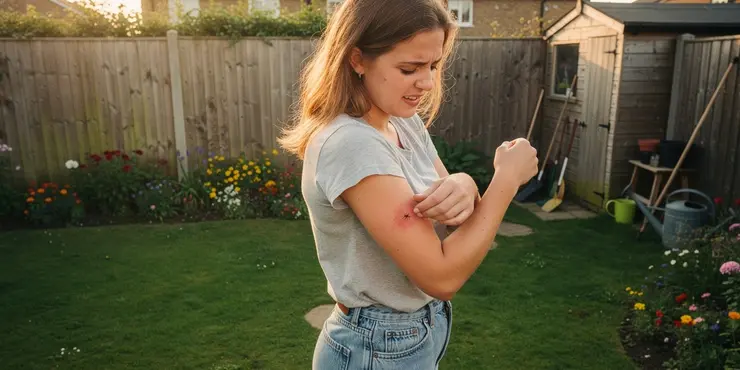
Why are mosquito bites itchy?
Relevance: 20%
-
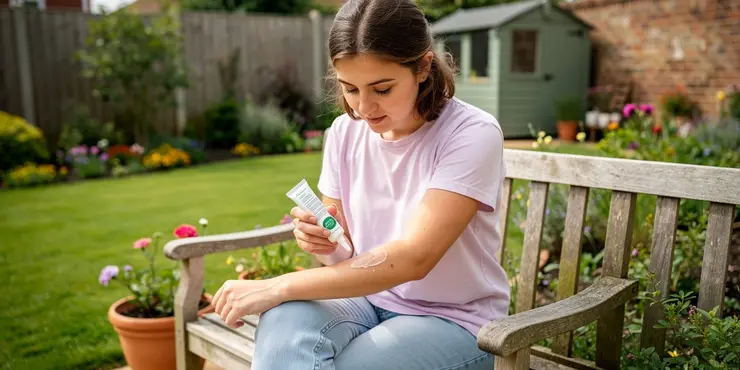
Self care - insect bites
Relevance: 20%
-
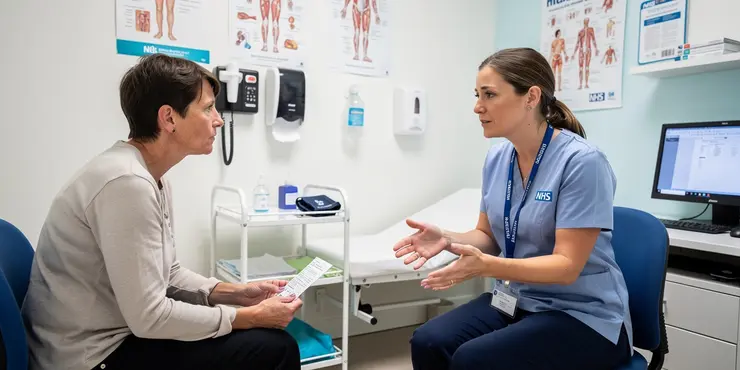
What can cause a false positive pregnancy test?
Relevance: 20%
-

How to treat a cat bite
Relevance: 20%
-

How to treat an insect bite or sting | NHS
Relevance: 20%
-

How can I treat mosquito bites?
Relevance: 19%
-
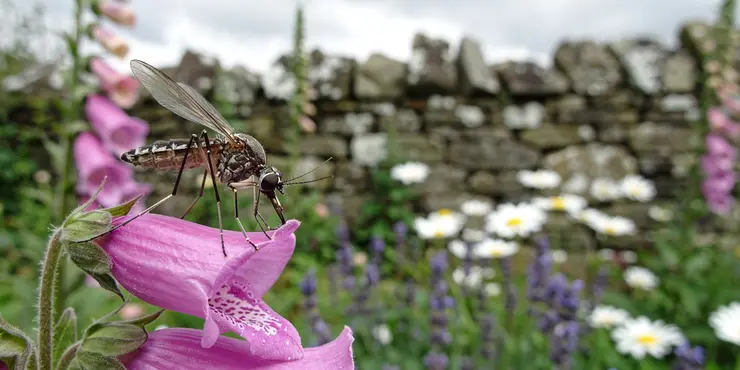
Do all mosquitoes bite humans?
Relevance: 19%
-
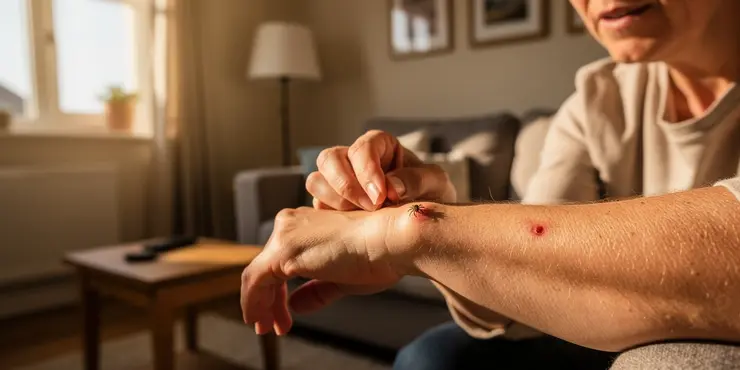
Tick Bites: Should you be worried?
Relevance: 19%
-

What is dangerous driving?
Relevance: 18%
-

Can HIV be transmitted through insect bites?
Relevance: 18%
-

What is considered dangerous driving?
Relevance: 17%
-

What are the consequences of dangerous driving?
Relevance: 17%
-
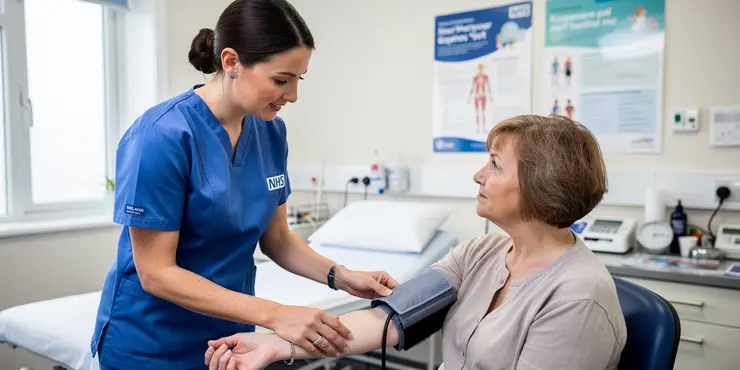
Is it dangerous driving to run a red light?
Relevance: 17%
-

Can AI systems reduce the rate of false positives in lung cancer screening?
Relevance: 17%
Introduction to the False Widow Spider
The false widow spider, known scientifically as Steatoda nobilis, is often considered one of the few potentially harmful spiders native to the UK. Originating from the Canary Islands, it has been present in the UK for over a century. Despite their notoriety, false widow spiders are not aggressive and bites are relatively rare. However, their increasing population in some areas has led to heightened public concern about the risks they pose.
Identifying the False Widow Spider
False widow spiders are often confused with the black widow spider, which is not native to the UK. They have a dark, bulbous abdomen with a distinctive cream pattern often likened to a skull. Adults typically measure between 7 and 14 millimeters and have reddish-brown legs. These spiders tend to reside in warm, dry places such as attics, conservatories, and sheds, and are more active during the warmer months. Understanding their physical characteristics can help alleviare unnecessary fears and allow for proper identification.
Potential Dangers of a False Widow Spider Bite
False widow spider bites are often compared to bee or wasp stings, causing localized pain, redness, and swelling. Most bitten individuals experience mild symptoms, though reactions can vary based on a person’s sensitivity. In some cases, more severe symptoms such as fever, nausea, or dizziness may occur, although such instances are rare. Cases requiring medical attention are even less common, and there have been no verified fatalities directly attributed to a false widow spider bite in the UK.
When to Seek Medical Help
While the majority of bites heal without complications, it is important to monitor the site for any signs of infection, which can include increasing redness, swelling, or warmth. If symptoms rapidly worsen or other concerning symptoms develop, such as difficulty breathing or chest pain, it is essential to seek medical help promptly. Individuals with known allergies to insect bites should be particularly cautious and may need to consult with healthcare professionals following a bite.
Prevention and Control
To reduce the risk of encountering false widow spiders, regular home maintenance such as sealing gaps and cracks, reducing clutter, and keeping areas around the house clean can be effective. Using insect screens and taking care to shake out shoes, clothing, and bedding before use may also help. For those uncomfortable with dealing with spiders, professional pest control services can identify and manage infestations efficiently and safely. Furthermore, educational resources provided by local councils or wildlife organizations can be valuable for learning more about these spiders and how to deal with them responsibly.
Conclusion
While false widow spiders have gained a fearsome reputation, the reality is that their bites are rarely more harmful than a common insect sting. By taking appropriate precautions and remaining informed, UK residents can coexist with these spiders with minimal risk. Understanding their behavior and taking simple measures to prevent encounters can help reduce undue alarm and promote a balanced view of these often-misunderstood creatures.
Introduction to the False Widow Spider
The false widow spider is a type of spider that lives in the UK. Its scientific name is Steatoda nobilis. It originally came from the Canary Islands. People in the UK have known about this spider for over 100 years. Even though some people think they are dangerous, these spiders are not aggressive and do not bite often. But more people are worried about them because there are more spiders in some areas now.
Identifying the False Widow Spider
False widow spiders can look like another spider called the black widow, but they are not the same. The false widow spider has a dark, round body with a cream pattern on it that can look like a skull. They are quite small, about 7 to 14 millimeters long, and have reddish-brown legs. They like to live in warm, dry places like attics and sheds. They are more active when it is warm. Knowing what they look like can help people not to worry too much and know which spider they are seeing.
Potential Dangers of a False Widow Spider Bite
A bite from a false widow spider is like a bee or wasp sting. It can hurt and cause a small red bump that may swell. Most people just have mild symptoms, but some people might feel a bit sick or dizzy. This is rare. It is very unusual for someone to need a doctor after a spider bite, and no one in the UK has died from a false widow spider bite.
When to Seek Medical Help
Most bites get better on their own, but it is important to watch the bite area. If it gets very red, swollen, or feels warm, or if you have trouble breathing or chest pain, you should see a doctor. People who are allergic to insect bites should be extra careful and might need to talk to a doctor if bitten.
Prevention and Control
To avoid false widow spiders, keep your house tidy and seal any cracks where they could enter. Use screens on windows and shake out shoes, clothes, and bedding before using them. If you don't want to deal with spiders yourself, you can call a professional pest control service to help. Your local council or wildlife groups can also give good advice on how to deal with these spiders.
Conclusion
Even though false widow spiders can seem scary, their bites are usually no worse than a typical insect sting. By being careful and learning about these spiders, people in the UK can live around them without much worry. Knowing how they act and taking simple steps to prevent seeing them can help keep everyone calm and safe.
Frequently Asked Questions
What is a false widow spider?
The false widow spider is a name given to several species of spiders in the genus Steatoda, which resemble the more dangerous black widow spiders.
Are false widow spiders venomous?
Yes, false widow spiders are venomous, but their venom is generally not considered dangerous to humans.
How dangerous is a false widow spider bite to humans?
A bite from a false widow spider can cause pain, redness, and swelling, similar to a wasp sting, but it is rarely dangerous to humans.
What are the symptoms of a false widow spider bite?
Symptoms may include localized pain, redness, swelling, and in some cases, nausea or a mild fever.
How can I identify a false widow spider?
False widows are usually dark brown with a bulbous abdomen and distinctive markings that may resemble a skull.
What should I do if bitten by a false widow spider?
Clean the bite area with soap and water, apply a cool compress, and take pain relief if necessary. Seek medical attention if symptoms worsen.
Can a false widow spider bite be fatal?
False widow spider bites are extremely unlikely to be fatal. Severe reactions are rare.
Where do false widow spiders live?
False widow spiders are commonly found in Europe but have also been reported in other parts of the world, including the UK and parts of North America.
Do false widow spiders attack humans?
False widow spiders are not aggressive and generally bite only in self-defense.
Can children be more affected by false widow spider bites?
Children may experience more pronounced symptoms due to their smaller body size, but severe reactions are still rare.
How can I prevent false widow spider bites?
To prevent bites, avoid handling the spiders, and take measures to reduce their presence in your home, such as sealing gaps and removing webs.
Are there long-term effects of a false widow spider bite?
Long-term effects are rare, but if symptoms persist or worsen, consult a healthcare professional.
Do false widow spiders carry diseases?
False widow spiders do not transmit diseases to humans.
What do false widow spiders eat?
False widow spiders primarily feed on insects and other invertebrates.
Can pets be affected by false widow spider bites?
Pets can be bitten, and reactions are similar to those in humans. If bitten, consult a veterinarian.
How do false widow spider bites compare to black widow bites?
False widow bites are significantly less severe than black widow bites, which can cause severe symptoms.
Are false widow spiders common indoors?
False widow spiders can be found indoors, especially in dark, undisturbed areas like attics and garages.
What size are false widow spiders?
False widow spiders are medium-sized, with body lengths ranging from 6 to 14 mm.
Do false widow spiders spin webs?
Yes, false widow spiders spin irregular, tangled webs to catch their prey.
Is it necessary to see a doctor for a false widow bite?
Most bites can be managed at home, but see a doctor if you experience severe symptoms or an allergic reaction.
What is a false widow spider?
A false widow spider is a type of spider. It looks like a dangerous spider called a black widow, but it is not as dangerous. False widow spiders are common in some places. If you see a spider, it is best to leave it alone.
If you want to learn more about spiders, you can look at pictures or watch videos. You can also ask a grown-up or a teacher to help you.
The false widow spider is a type of spider. It looks like the more dangerous black widow spider. False widow spiders belong to a group called Steatoda.
Do false widow spiders have poison?
Yes, false widow spiders have venom. But their bites are usually not harmful to people.
Are false widow spider bites dangerous to people?
A false widow spider bite can hurt and make your skin red and swollen, like a wasp sting. But don't worry, it's not usually harmful to people.
What happens if a false widow spider bites you?
If a false widow spider bites you, it might hurt a little. Here are some things you might feel:
- Your skin might hurt or feel sore.
- The spot can get red, like a rash.
- You might see a small bump, like a bee sting.
- Sometimes you might feel a bit sick or dizzy.
If you get bitten and feel worried, you should talk to an adult. Sometimes, using a cool cloth can help the sore spot feel better.
Some signs might be:
- Pain in one spot
- Red skin
- Swelling or puffiness
- Feeling sick or a small fever
If reading is hard, try these ideas:
- Ask someone for help
- Use pictures to understand
- Read out loud to make sense of it
- Use a computer that reads words to you
How can I know if a spider is a false widow?
A false widow spider is a type of spider. Here is how you can spot one:
- Color: False widow spiders are dark brown. They have some white markings on their body.
- Shape: They have round, big bodies.
- Legs: Their legs are a lighter brown color.
- Size: They are about the size of a 20p coin.
If you need help, ask a grown-up. You can also look at pictures online or in books. Be careful and do not touch a spider unless you are sure it is safe.
False widow spiders are usually dark brown. They have a big, round body. You might also see special marks on them that look like a skull.
What to do if a false widow spider bites you?
If a false widow spider bites you, stay calm.
First, wash the bite with soap and water.
Next, put a cold cloth or ice on the bite. This can help stop pain and swelling.
If it still hurts or gets worse, you can tell an adult or a doctor.
It's helpful to ask for support if you need it.
Remember, most spider bites are not serious.
Wash the bite with soap and water. Put something cold on it to help it feel better. Take medicine if it hurts. Go to the doctor if it gets worse.
Can a false widow spider bite kill you?
It is very rare for a false widow spider bite to cause death. Most people do not have bad reactions.
Where do false widow spiders live?
False widow spiders live in warm places. They like to be inside houses, sheds, and garages. You might see them in corners or near the ceiling.
To learn more, you can use picture books or watch videos about spiders. Asking a grown-up to help can also be useful.
False widow spiders live in Europe. You can also find them in the UK and North America.
Do false widow spiders bite people?
No, false widow spiders do not attack people. They usually only bite if you bother them.
If you see a false widow spider, it's best to leave it alone.
Remember, false widow bites are rare and not very dangerous.
If you get bitten by any spider and it hurts, tell an adult.
False widow spiders don't usually attack. They might bite only if they feel scared or threatened.
Do false widow spider bites hurt children more?
Kids might feel stronger symptoms because they are smaller. But having a really bad reaction doesn't happen often.
How can I stop false widow spider bites?
Here are some easy tips to help you stay safe from false widow spiders:
- Keep your house clean: Spiders like to hide in messy places. Keep things tidy to make it harder for them to hide.
- Seal cracks: Check your home for small holes or spaces where spiders can crawl in. Close them up with tape or filler.
- Move your bed away from the wall: This gives spiders less chance to climb onto your bed.
- Shake clothes and shoes: Before putting them on, check your clothes and shoes to make sure no spiders are hiding. Shake them to be sure.
- Use screens: Put screens on windows and doors to keep spiders out.
- Use a flashlight: When it's dark, use a flashlight to see better and avoid spiders.
If you want extra help, try these:
- Pictures: Look at pictures of false widow spiders. This will help you know what they look like.
- Video guides: Watch videos that show how to prevent spider bites.
- Apps: Use apps that remind you to check your home for spiders.
To stop spider bites, do not touch the spiders. Try to keep them out of your home by closing any holes and taking away spider webs.
What happens if a false widow spider bites you for a long time?
Long-term problems do not happen often. But if you still feel unwell or feel worse, talk to a doctor.
Do False Widow Spiders Make You Sick?
Can false widow spiders give you a disease? No, they cannot give you diseases. But, if they bite you, it can hurt.
If you're scared of spiders, you can use a book or a soft cloth to gently move them away.
You can ask an adult to help you if you see a false widow spider.
False widow spiders do not give people diseases.
What do false widow spiders eat?
False widow spiders like to eat insects. They catch bugs like flies and ants in their webs. The spiders eat the bugs to get energy and stay healthy.
If you find reading hard, try using an audiobook or ask someone to read with you.
False widow spiders mostly eat bugs and creatures without backbones.
Can pets get sick from false widow spider bites?
Sometimes pets can get bitten by false widow spiders. If a pet is bitten, it might feel pain or get sick. Watch your pet for any changes, like if it is limping or not eating.
If you think your pet is bitten, it is a good idea to take it to the vet. The vet can help your pet feel better.
Ask an adult for help if you are worried about your pet.
Pets can get bites. They react like people do. If your pet gets a bite, talk to an animal doctor.
What is the difference between a false widow spider bite and a black widow spider bite?
False widow spider bites are not as bad as black widow spider bites. Black widow bites can make you very sick.
Do false widow spiders often live inside houses?
False widow spiders like to live inside. You can find them in dark places that people don't use much, like attics and garages.
How big are false widow spiders?
False widow spiders are small. They are about as big as a 50 pence coin. Use a ruler or a coin to help you see how big that is.
False widow spiders are not very big. Their bodies are about as long as a peanut, which is 6 to 14 mm.
Do false widow spiders make webs?
Yes, false widow spiders make webs.
If reading is hard, you can ask someone for help.
Try using pictures of spiders and their webs to understand better.
Yes, false widow spiders make messy webs to catch bugs.
Do I need to see a doctor if a false widow spider bites me?
Most bites can be taken care of at home. But if you feel very sick or have an allergy, go see a doctor.
Useful Links
This website offers general information and is not a substitute for professional advice.
Always seek guidance from qualified professionals.
If you have any medical concerns or need urgent help, contact a healthcare professional or emergency services immediately.
Some of this content was generated with AI assistance. We’ve done our best to keep it accurate, helpful, and human-friendly.
- Ergsy carfully checks the information in the videos we provide here.
- Videos shown by Youtube after a video has completed, have NOT been reviewed by ERGSY.
- To view, click the arrow in centre of video.
- Most of the videos you find here will have subtitles and/or closed captions available.
- You may need to turn these on, and choose your preferred language.
- Go to the video you'd like to watch.
- If closed captions (CC) are available, settings will be visible on the bottom right of the video player.
- To turn on Captions, click settings .
- To turn off Captions, click settings again.
More Items From Ergsy search
-

Is the bite from a false widow spider dangerous?
Relevance: 100%
-

How can I identify a false widow spider?
Relevance: 77%
-

What is the most dangerous spider in the UK?
Relevance: 69%
-

Which spiders in the UK can bite humans?
Relevance: 65%
-

Are there any poisonous spiders in the UK?
Relevance: 55%
-

Are UK spiders venomous?
Relevance: 53%
-

Do spiders in the UK carry diseases?
Relevance: 49%
-

Do UK spiders pose a threat to pets?
Relevance: 49%
-

What should I do if I get bitten by a spider in the UK?
Relevance: 45%
-

Can UK spiders cause allergic reactions?
Relevance: 41%
-

Are there non-venomous spiders in the UK?
Relevance: 40%
-

How common are spider bites in the UK?
Relevance: 39%
-

Is professional pest control needed for spiders?
Relevance: 37%
-

What should I do if I find a spider in my home?
Relevance: 35%
-

Can I keep a spider in the UK as a pet?
Relevance: 31%
-

What types of spiders are commonly found in UK homes?
Relevance: 28%
-

Think Pharmacy: Introduction for Bites and Stings
Relevance: 26%
-

Are there any precautions to take against spiders in the UK?
Relevance: 26%
-

How big can spiders in the UK get?
Relevance: 25%
-

Why might there be more spiders in the home during autumn?
Relevance: 24%
-

What is a false pretence?
Relevance: 24%
-

How to treat a dog bite
Relevance: 23%
-

What are the benefits of having spiders in the home?
Relevance: 23%
-

Are mosquito bites in the UK harmful?
Relevance: 21%
-

Are bed bugs dangerous?
Relevance: 21%
-

How can I tell if bites are from bed bugs?
Relevance: 20%
-

Why are mosquito bites itchy?
Relevance: 20%
-

Self care - insect bites
Relevance: 20%
-

What can cause a false positive pregnancy test?
Relevance: 20%
-

How to treat a cat bite
Relevance: 20%
-

How to treat an insect bite or sting | NHS
Relevance: 20%
-

How can I treat mosquito bites?
Relevance: 19%
-

Do all mosquitoes bite humans?
Relevance: 19%
-

Tick Bites: Should you be worried?
Relevance: 19%
-

What is dangerous driving?
Relevance: 18%
-

Can HIV be transmitted through insect bites?
Relevance: 18%
-

What is considered dangerous driving?
Relevance: 17%
-

What are the consequences of dangerous driving?
Relevance: 17%
-

Is it dangerous driving to run a red light?
Relevance: 17%
-

Can AI systems reduce the rate of false positives in lung cancer screening?
Relevance: 17%


